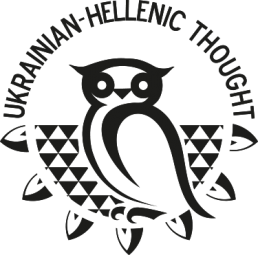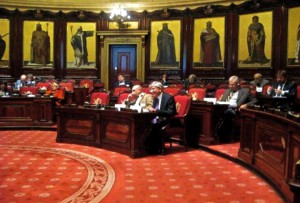Ukrainian World Congress President addresses PACE Committee on Political Affairs and Democracy
The UWC President focused on the dramatic consequences of Russia’s aggression against Ukraine by citing statistics from the UN Office for the Coordination of Humanitarian Affairs. As at 31 October 2015: 7,883 people killed, 17,610 people wounded, 1.5 million internally displaced persons, including 194,000 children, 5 million people in need of humanitarian assistance, and 30,000 hectares contaminated by landmines.
Eugene Czolij also stressed that Russian aggression in Ukraine is not an isolated event, but part of a broader pattern that threatens international stability in Europe and beyond. Drawing attention to President Putin’s repeated assertions that he has both a right and a duty to “protect ethnic Russians and Russian speakers”, wherever they may be, the UWC President emphasized the danger of these assertions for not only Ukraine, but also Bulgaria, Estonia, Georgia, Kazakhstan, Kyrgyzstan, Latvia, Lithuania, Moldova, Poland, Tajikistan and Uzbekistan, among others.
The UWC President recommended that the Committee:
- assess the political consequences of the situation in Ukraine not in terms of a “crisis”, but in terms of “Russian aggression” that threatens global peace and security;
- clearly state in its report that the international community must remain united in imposing further and decisive economic sanctions against Russia that would make it prohibitive for Russia to pursue its imperialistic plans, and compel it to withdraw its military forces from Ukraine and fully respect Ukraine’s independence and territorial integrity;
- urge the international community to initiate the equivalent of a Marshall Plan for Ukraine to help it to overcome its current economic crisis and implement the necessary reforms that would enable it to become a successful and fully‑integrated European country.
A video of excerpts of the remarks of the UWC President can be seen here.
The UWC is the international coordinating body for Ukrainian communities in the diaspora representing the interests of over 20 million Ukrainians. The UWC has member organizations in 34 countries and ties with Ukrainians in 14 additional countries. Founded in 1967, the UWC was recognized in 2003 by the United Nations Economic and Social Council as a non-governmental organization (NGO) with special consultative status.


